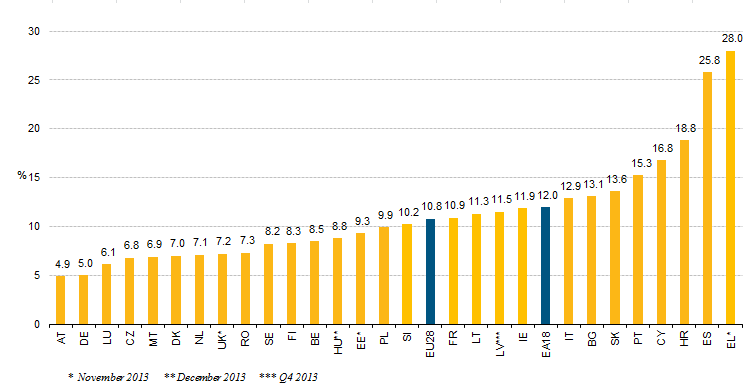Nobody really knows what will happen in terms of Spain’s future growth. Obviously, whatever awaits will depend on many factors, both domestic and foreign. First and foremost, Spanish growth will depend on any and all future reforms and policy measures that the current and future Spanish governments may take.
Unfortunately, the reform plans of the current government are a carefully guarded secret and, therefore, they are hard to comment on. Secondly, Spanish growth will depend on the economic performance of the eurozone countries and of the rest of the world economy, and this, too, is a big unknown.
This said, when we look into the crystal ball of the economic future of Spain, an elasticity emerges that will surely make a large difference for its future growth: the output elasticity of employment.

The output elasticity of employment
Traditionally, Spain has had short-lived recessions and very high firing costs. The optimal response to these two circumstances is to hoard labor. So much so, that a folk theorem much favored by many commentators and by the Spanish media claims that Spain only creates net employment when its GDP starts growing at 2 percent or more. It is hard for us to tell whether or not this was the case in the past. But we have reason to believe that this time it might very well be different.
The recession that started in the first quarter of 2008 has been the deepest and longest in the last 30 years. And since 2010, two labor market reforms have reduced statutory firing costs at least somewhat. These two changes suggest that labor hoarding in Spain is most likely at an all-time low. The firms that have survived the recession most probably have shed all their surplus labor by now, and have adjusted their labor force to a shrinking market. If this were the case, we might see net jobs being created with even minimal growth .
If this is what ends up happening, job creation will accelerate the growth of private consumption, and the growth of consumption will accelerate the growth of GDP, helping make the growth process self-sustained


